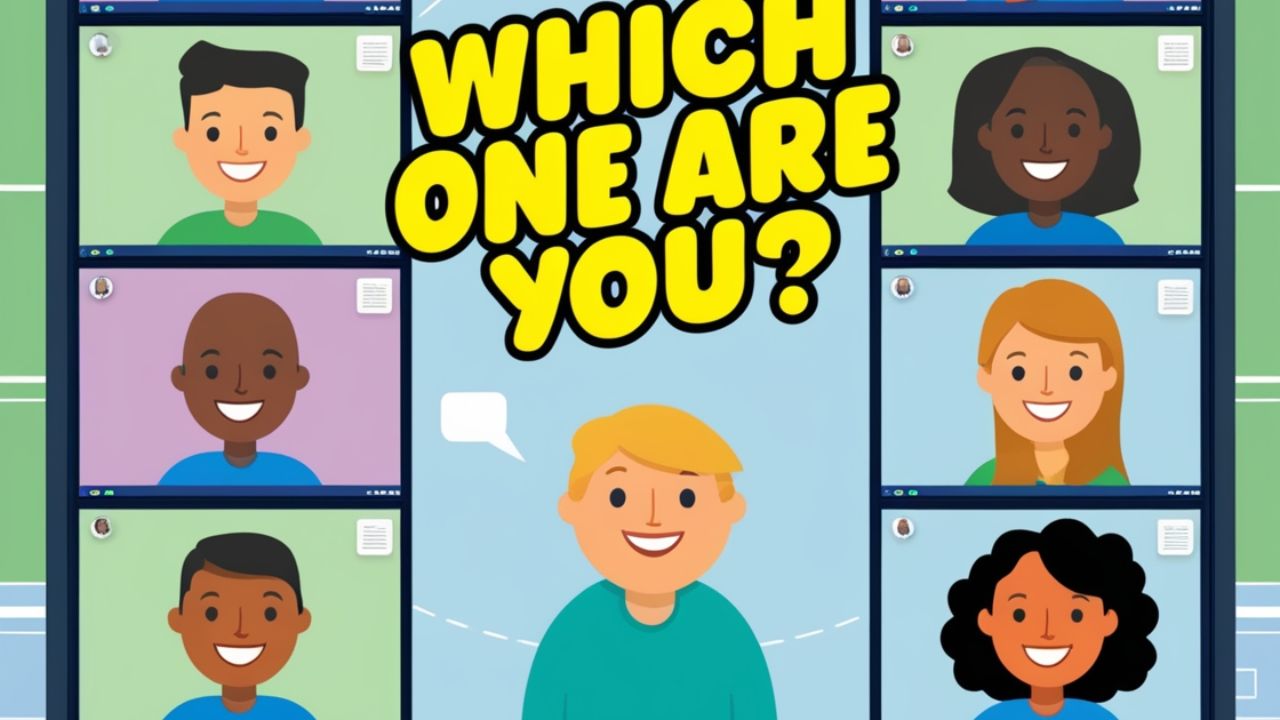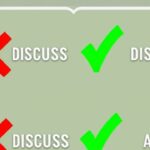Which One Is You vs Which One Are You Explained helps learners use English correctly. You always pairs with are in sentences. Saying the wrong form can make speech confusing. Using proper grammar improves confidence and makes communication clear and smooth.
Many people mix these phrases in casual conversations. Some may say the incorrect version in social media posts or informal chats. Learning the right way helps avoid mistakes and makes sentences sound natural. Subject-verb agreement is important for all English learners.
Practicing with simple examples strengthens understanding. Replacing you with other pronouns like he or she can help check correctness. Using these tips makes it easier to speak properly. Clear rules and grammar exercises help learners remember the correct forms naturally.
Understanding “You” in American English
In American English, you can mean one person or many people. The word always works as a second-person pronoun. It pairs with are in sentences, no matter how many people are involved. Using it correctly helps learners speak clearly and confidently.
Understanding subject-verb agreement with you is important. Even when talking to just one person, the verb must match. Correct use in writing and conversation makes sentences sound natural. Following this simple rule improves grammar skills for all learners.
Subject-Verb Agreement with “You”
| Subject | Verb (Present Tense) | Example |
| I | am | I am going |
| He/She/It | is | She is ready |
| You | are | You are correct |
| We/They | are | They are excited |
The subject-verb agreement with you is simple. You always pairs with are, even when talking to one person. Using the correct form makes sentences clear. Following this rule helps learners speak and write English correctly without confusion.
Correctly matching the verb with the subject improves understanding. Sentences like “You are happy” show proper usage. Practicing this in writing and speaking helps learners remember the rule. Clear examples make grammar easier and boost confidence in everyday communication.
See also Soo vs. So: Key Differences Explained Simply
Dissecting the Phrases: Which One Is You vs. Which One Are You
- Correct Subject-Verb Agreement – The phrase “Which one are you” matches the subject with the correct verb. Using are with you keeps sentences grammatically correct and clear.
- Common Mistake – Many people say “Which one is you?” in casual speech. This breaks grammar rules and can confuse listeners or readers.
- Clear Communication – Choosing the right form improves writing and speaking. Correct phrases make sentences sound natural and show proper English usage in all situations.
Phrase Structure Comparison
Comparing phrase structure helps learners see how sentences form. Correct alignment of the subject and verb makes speech and writing clear. Using proper grammar patterns ensures sentences sound natural and avoids confusion for anyone reading or listening.
Some phrases look correct but break the rules of agreement. Checking the word order and matching the subject with the right verb helps learners use English confidently. Practicing simple examples strengthens understanding and improves overall communication skills.
- Subject and Verb Match – Correct subject-verb agreement makes sentences clear. Using the right verb form with you helps learners speak and write properly.
- Check Word Order – The placement of words affects sentence structure. Proper word arrangement ensures sentences sound natural and easy to understand.
- Practice Makes Perfect – Trying examples with different pronouns and verbs strengthens grammar skills. Consistent practice improves English communication and builds confidence.
Subject and Verb Inversion in Questions
- Switch Subject and Verb – In questions, the verb comes before the subject. This helps make clear and correct English sentences.
- Examples with “You” – A statement like “You are happy” changes to “Are you happy?” following proper question structure.
- Practice for Accuracy – Using inversion in exercises improves speaking and writing. Regular practice strengthens grammar skills and helps learners communicate confidently.
Why People Use “Which One Is You?” (Even If It’s Wrong)

You might hear people use “Which one is you?” in casual speech or informal writing. This happens for a few reasons:
1. Regional Dialects
- Local Speech Patterns – Some regions use informal grammar in everyday conversations. Phrases like “Which one is you?” appear in certain dialects.
- Casual Communication – People often say incorrect forms in social chats or texting. It sounds normal locally but breaks standard grammar rules.
- Learning Awareness – Knowing about regional differences helps learners understand spoken English better. It also shows why some phrases feel common even if they are wrong.
2. Misleading Word Order
English question structure can sometimes confuse learners. If you’re not sure whether the subject is “you” or “which one,” you might guess wrong.
See also To Fast or Too Fast: Learn the Correct Grammar Usage
Real-Life Situations: When These Phrases Come Up
Understanding context is critical. Here are a few scenarios where you might encounter these phrases:
Group Identification
- Spotting People in a Group – In situations with many people, using correct phrases and grammar helps identify someone clearly.
- Clear Communication – Asking with proper subject-verb agreement ensures everyone understands who is being referred to.
- Practical Use – Correct usage in meetings, classrooms, or online calls improves English communication and avoids confusion when naming individuals.
In-Person Event or Line-Up
- Identifying People Clearly – During events, using correct phrases and grammar helps point out individuals in a line or group.
- Avoiding Confusion – Proper subject-verb agreement ensures that everyone understands who is being referred to.
- Practical Communication – Using correct forms in meetings, check-ins, or classrooms improves English speaking skills and makes instructions easy to follow.
Social Media Threads
- Clear Comments – Using correct grammar and phrases helps readers understand who is being mentioned in online posts.
- Avoid Misunderstandings – Proper subject-verb agreement makes conversations in social media threads easy to follow.
- Better Communication – Practicing correct forms improves English writing skills and makes online interactions clear and professional.
Simple Grammar Rules to Remember
To avoid confusion, commit these rules to memory:
Rule 1: “You” Always Pairs with “Are”
- Correct Verb Form – The pronoun you always matches with are. This keeps English sentences clear and correct.
- Single or Multiple People – Whether talking to one person or a group, are stays with you in all situations.
- Builds Confidence – Using this rule in writing and speaking helps learners communicate clearly and improves overall grammar skills.
Rule 2: Inverted Questions Still Follow Agreement
- Switch Subject and Verb – In questions, the subject and verb change places, but the verb still agrees with the subject.
- Examples with “You” – A statement like “You are ready” becomes “Are you ready?” following proper English rules.
- Practice for Accuracy – Using correct forms in writing and speaking improves grammar skills and helps learners communicate clearly.
Rule 3: “Is” Is for Third Person Singular
- Correct Verb Use – The verb is matches only with he, she, it, or a singular noun in sentences.
- Avoid Mistakes with “You” – Using is with you is wrong. Always pair you with are for correct grammar.
- Clear Communication – Following this rule in writing and speaking makes sentences easy to understand and strengthens overall English skills.
How to Remember the Correct Form Easily
Here are some tips that make correct usage second nature:
Use Substitution to Check
- Replace Pronouns – Swap you with he, she, or they to see if the verb form is correct in a sentence.
- Identify Errors Quickly – This method helps spot grammar mistakes and ensures subject-verb agreement is accurate.
- Practice and Learn – Using substitution in writing and speaking exercises strengthens understanding and improves overall English communication skills.
Create Mnemonics
- Make Simple Memory Aids – Use short phrases or letters to remember grammar rules easily, like Y-A-R: You Are Right.
- Improve Recall – Mnemonics help learners quickly check subject-verb agreement when speaking or writing English sentences.
- Practice Regularly – Using these memory tricks in exercises strengthens understanding and makes grammar skills stick over time.
Practice Common Question Forms
| Incorrect | Correct |
| Where is you? | Where are you? |
| Who is you? | Who are you? |
| Which one is you? | Which one are you? |
Try Mirror Sentences
- Write Statement and Question – Make a sentence and its question form to see the correct subject-verb agreement.
- Check Pronouns and Verbs – Using mirror sentences helps learners match you with the correct verb form.
- Practice Often – Regular exercises with mirror sentences improve grammar skills and make English communication clearer and easier.
Editing and Proofreading Tips for This Grammar Issue
This mistake can sneak into writing, especially dialogue or casual texts. Here’s how to catch it:
1. Read Aloud
- Listen to Your Words – Reading sentences aloud helps check grammar and hear if they sound correct in English.
- Spot Mistakes Quickly – Hearing your own voice makes it easier to find subject-verb agreement errors.
- Improve Speaking Skills – Regular practice in reading aloud strengthens communication and boosts confidence in both writing and conversation.
2. Use Grammar Tools
- Check Sentences Easily – Tools like Grammarly or Hemingway help spot grammar mistakes quickly in writing.
- Correct Subject-Verb Agreement – These tools highlight errors when the verb does not match the subject, making learning easier.
- Improve English Skills – Regular use of grammar tools strengthens understanding and boosts confidence in writing and speaking.
3. Replace “You” With Another Pronoun
- Test Sentence Structure – Replace you with he, she, or they to check if the verb form is correct.
- Spot Errors Easily – This method helps identify subject-verb agreement mistakes quickly in English sentences.
- Practice for Accuracy – Using this trick in writing and speaking exercises strengthens grammar skills and improves overall communication.
Case Study: Social Media Dialogue Gone Wrong
A social media dialogue can show common mistakes in grammar. Using the wrong subject-verb agreement makes sentences unclear. For example, someone might write “Which one is you?”, which confuses readers. Correct use helps make posts clear and professional.
Learning from these real-life examples improves writing skills. Replacing you with other pronouns or checking the verb form prevents errors. Practicing these tips builds confidence and ensures that all messages on social media platforms sound correct and easy to understand.
Pop Culture Moments: Bending Grammar for Humor or Effect
TV shows, songs, and movies sometimes use “Which one is you?” for stylistic or comedic effect.
Examples
- TV Shows – Some sitcoms use “Which one is you?” for humor, bending standard grammar rules for effect.
- Songs and Lyrics – Incorrect grammar appears in song lyrics to match rhythm or rhyme, showing creative English usage.
- Comedic Writing – Writers sometimes break subject-verb agreement intentionally in scripts or social media to make sentences funny or dramatic.
Expanding Beyond This One Phrase
To get more fluent with English question forms involving “you,” practice with these structures:
Similar Confusions
| Incorrect Phrase | Correct Phrase |
| Where is you? | Where are you? |
| Who is you? | Who are you? |
| What is you doing? | What are you doing? |
Bonus Phrases
- Which Are You? – This phrase uses correct subject-verb agreement and works well in group identification situations.
- Are You the One Who…? – Proper grammar makes sentences clear in writing and speaking.
- Check the Subject – Always match the verb with the pronoun to ensure English sentences are correct and easy to understand.
Quick Reference Table
| Sentence | Correct or Incorrect? | Explanation |
| Which one is you? |  Incorrect Incorrect | “You” should be paired with “are” |
| Which one are you? |  Correct Correct | Standard subject-verb agreement |
| Who is you? |  Incorrect Incorrect | “You” can’t go with “is” |
| Who are you? |  Correct Correct | “Are” matches with “you” |
Final Thoughts
Small grammar rules make a big difference in writing and speaking. Using correct subject-verb agreement with you improves clarity. Clear sentences help others understand messages easily and show that learners pay attention to grammar details, which builds confidence.
Practicing these simple tips strengthens English skills. Following proper sentence structure and checking verb forms ensures all communication is correct. Consistent use of these rules in everyday writing and conversation helps learners speak naturally and make a good impression.
FAQs
Is it “Which One Is You” or “Which One Are You”?
The correct form is “Which one are you”. You always pairs with are, not is, even when referring to one person.
Which Is Correct, “Which Is” or “Which Are”?
Use which is for he, she, it, or singular nouns. Use which are for you, we, they, or plural nouns.
When to Use “You Is” and “You Are”?
Always use you are. You is is grammatically incorrect in standard English, whether singular or plural.
Which One Am I or Which One Is Me?
The correct phrase is “Which one am I”. Using is me is incorrect because am matches the first-person pronoun.

Join Bibcia on a journey to master English grammar. Discover easy lessons, writing tips, and practical examples designed to make learning grammar simple and effective.










